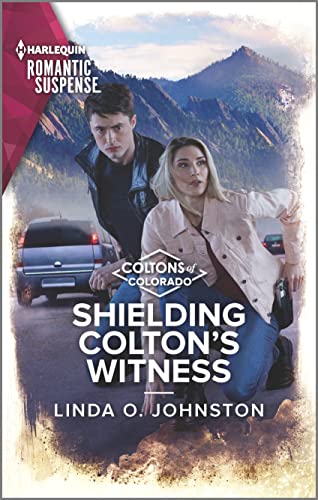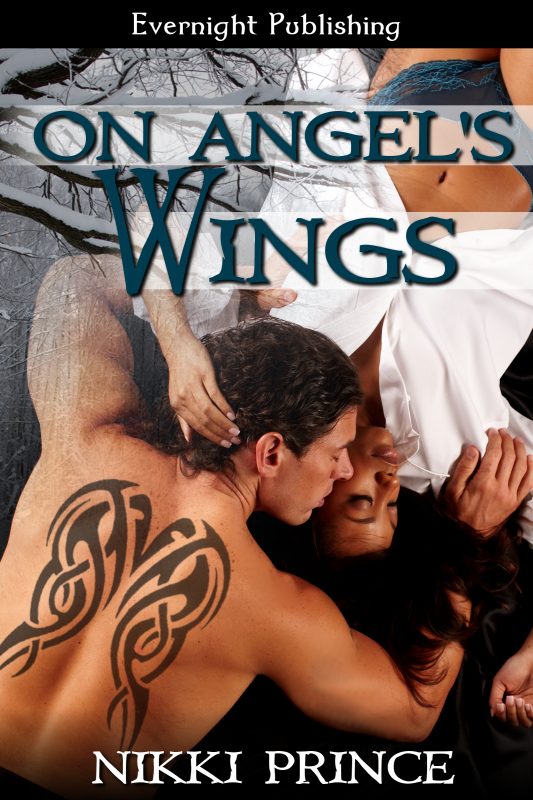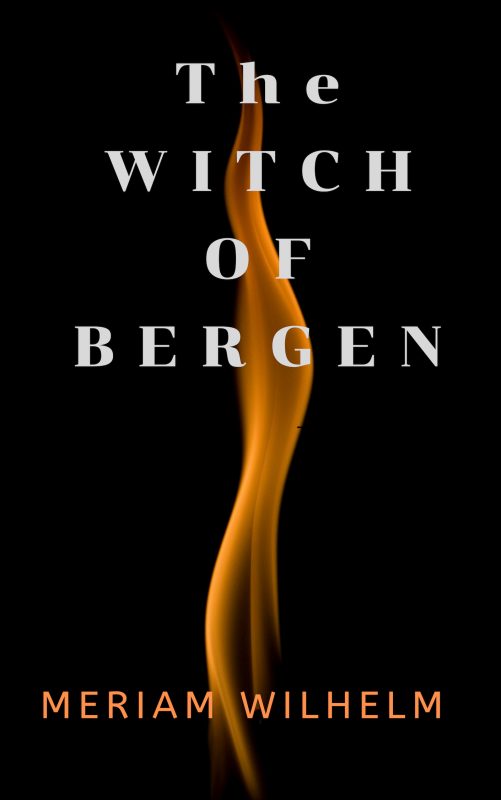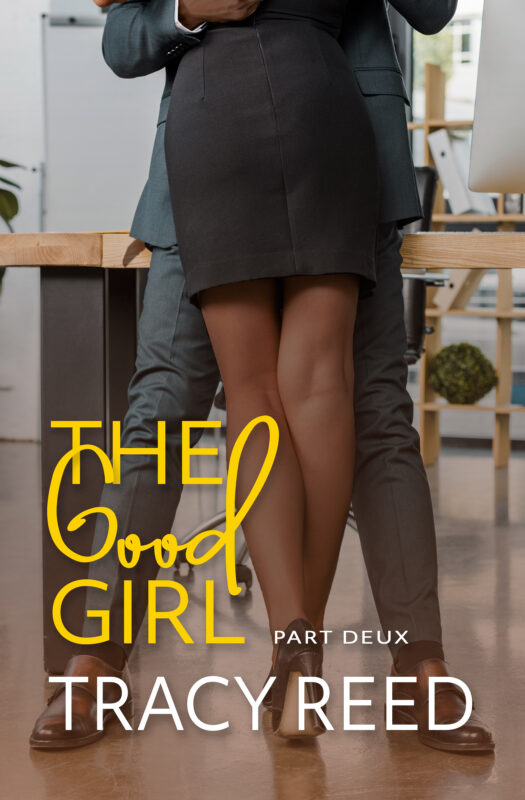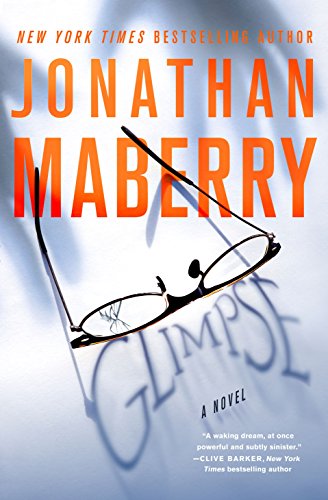My Titanic Love Story pubs March 17th… The Runaway Girl will run away with your heart by Jina Bacarr
March 11, 2020 by Jina Bacarr in category Jina’s Book Chat, Writing tagged as BookBub, giveaway, TitanicI’m excited to announce that my Titanic love story, THE RUNAWAY GIRL, will be published on March 17th.
———–
Reviews.
You either love them or cringe…. but they’re part of the business.
Kind of like you see in the old black and white films when the actors, director, and producer all gather at a famous restaurant, drink coffee and cognac, and wait for the early morning reviews in the daily newspapers…
There was something romantic about those days when we waited for print reviews. Smiling when they’re good, sighing when they’re not, but always grateful someone took their time to give us their honest opinion. You grow as a writer from reviews… all of them.
Now you can get a review in an instant on your smartphone.
It’s enough to keep a writer up at nights, sleeping with her phone by her side, waiting for that inevitable beep or chime that signals we’re about to celebrate with double chocolate brownies or go back to the drawing board with cold coffee at our side till we get it right.
And sometimes we do get it right.
I’m excited to say THE RUNAWAY GIRL has received amazing reviews:
‘A fantastic Titanic take woven in with a great portrayal of love, friendship, and even forgiveness. I would have rather seen this as a movie than the Jack and Rose story!!!’
‘… the writing was very good and so detailed that it felt like it was all so believable, and could really have happened. This was my first book to have read by this author but she managed to take me on an epic journey with her characters which I totally fell in love with.’
‘I loved, loved this book so much!!!’
‘This was such a good story, the characters were so compelling and you become so invested in them you want to keep reading even way after the story ends!’
‘The Runaway Girl is a mesmerizing romance that any reader (like me) that loves all things Titanic will adore.’
‘What a fantastic storyline the characters were compelling and I loved this story couldn’t put it down it was so well written, loved it’
‘From start to finish I was enchanted with the story and the characters and all the finer details describing the ship, clothes and scenery.’
‘The Runaway Girl: A Titanic Love Story is perfect for historical fiction and romance fans.’
‘The author has a way of creating a vivid, historically authentic world of the Titanic through this wonderful story. You will start to love the favorable characters and the great storyline.’
‘Oh how I adored this story.’
You can read all the NetGalley reviews in their entirety HERE.
If you’re a book blogger or a reviewer registered on NetGalley who’d like to give your opinion about my Titanic love story, it’s not too late to request a preview copy of The Runaway Girl.
Here’s the link:
US: https://www.netgalley.com/catalog/book/183647
I anxiously await to hear what you think! Believe me, besides those double chocolate brownies, there’s nothing that makes an author’s day than a review!
Thank you, everyone.
~Jina
THE RUNAWAY GIRL, is on schedule for a March 17 pub date.
Two women hold the keys to his heart. Only one will survive that fateful night…
When Ava O’Reilly is wrongly accused of stealing from her employer, she has no option but to flee Ireland. The law is after her, and she has only one chance at escape – the Titanic.
Aboard the ship of dreams, she runs straight into the arms of Captain ‘Buck’ Blackthorn, a dashing gentleman gambler who promises to be her protector. He is intrigued by her Irish beauty and manages to disguise her as the maid of his good friend, the lovely Countess of Marbury. Little does he realise, that the Countess is also in love with him.
As the fateful night approaches, tragedy strikes further when Ava is separated from Buck, and must make a daring choice that will change her life forever…
A sweeping historical romance set aboard the Titanic, from the author of Her Lost Love (Christmas Once Again).
Praise for Jina Bacarr:
‘A delightful holiday romance that has all the charm of a classic Christmas movie. Christmas Once Again is perfect for anyone who loves a holiday romance brimming with mistletoe, hope, and what ifs.’ Andie Newton, author of The Girl I Left Behind
‘A breathtaking holiday romance that is sure to stay with you long after reading’
‘A mesmerizing holiday romance that is sure to sweep you off your feet and take you away to another place, another time.’
‘A fabulous book you won’t want to miss’
THE RUNAWAY GIRL is now up for pre-order in e-book, print and audio book:
Kobo.
Saying Goodbye to Joyce Ward
March 10, 2020 by Tari Jewett in category WritingSaturday was a tough day. We said goodbye to a good friend, author Joyce Ward, who also wrote as Linnea Alexis. This was the message I shared on Saturday, and I wanted to share with all of you:

Are you a plotter or a pantser? Many of you know what I’m talking about, but for those who don’t, as writers, plotters are those who plan out their books in detail, and they know where the story is going long before they actually start to write. Pantsers, are those who take it as it comes, writing by the seat of their pants. And then there are I suspect many of us who are somewhere in the middle. We do some planning and some pantsing as we write. There’s no right or wrong way, it’s just the process that works best for us as authors to get the story on the page.
In life it’s much the same. Many are plotters, planning their life in detail. Where do you want to be in 5 years? In 10? What’s the best path to reach those goals. Others are pantsers, living life as it comes, waiting for the surprise plot twist. And most of us fall somewhere in the middle, because in life, a plot twist isn’t always something that we plan. Again, there’s no right or wrong.
Joyce Ward and I met when we were at similar places in our lives. Our kids were grown and we were both reaching for a dream we’d long waited to attain, being authors. We were new members of the Orange County Chapter of Romance Writers of America, and in a little bit of a plot twist, the first time we met we were sharing a hotel room for an author event. There were three of us sharing the hotel room that weekend, Joyce, Erin Pryor and me. All of us unpublished authors.
We were instant friends, talking about story plots, the speakers and what we hoped to learn and achieve in our new endeavors. After that weekend, Joyce and I roomed together at many writers events. It worked out well. We both snored, we coordinated our workshop schedules, and at night we would talk for hours about writing, but also about our families…she loved hers very much, about our pasts about our lives.
There were many times that Joyce called me and told me she was quitting, that she was a terrible writer and she was done. She wasn’t going to write another word, and I would remind her this was her dream, she couldn’t give up, and she had way too many ideas that needed to be put on paper.
The next time we spoke I’d be the one ready to walk away, stay home and bake cookies, and Joyce would be the friend at the other end of the line telling me I couldn’t give up.
In fact, Joyce was the reason that my first book was published. She had submitted to a boxed set publisher, and called me up to tell me I needed to submit as well. Her support, her belief in me pushed me to do what I wanted to do, but sometimes wasn’t sure that I could
Joyce worked tirelessly for our RWA chapter, chairing the Book Buyers Best Contest for many years. The contest is a lot of work, and at the time that Joyce started doing it, she had to collect piles of print books, store them in her home, sort them and mail them out to people, as well as recruiting all of the judges and collecting ballots. She was good at recruiting judges. I could never say ‘no’ to her!
My best memories of Joyce are of the conferences and events that we attended together. We shared a passion, we shared many of the same hopes and dreams. We could talk about our families, especially our children. I know how much Joyce appreciated that her children supported her dreams, and believed in her. We called each other with good news, or to commiserate. We were friends.
And then another plot twist, and here we are today. Saying goodbye for now.
I miss Joyce. I miss calling her when I want to throw in the towel. I miss her voice telling me not that I can’t stop writing. I miss planning our writing trips.
But Joyce will always be in our hearts, her books will keep her alive to everyone who reads them, and memories will keep her story going for all of us who loved her.
I’m sure that Joyce is in heaven right now, plotting and planning stories to share when we meet her again.
Taking Notes on Your Kindle – and Finding Them Again by Kitty Bucholtz
March 9, 2020 by Kitty Bucholtz in category It's Worth It by Kitty Bucholtz tagged as Amazon Kindle, editing, It's Worth It, Kitty Bucholtz, organization, Self-editingNote: Kitty is at a conference so we’re rerunning one of her columns from our archives. We hope Kitty has a great time, and we hope you enjoy her column.

In November 2017, I wrote about how you can send nearly any kind of text-based document to your Kindle. A couple weeks ago, a friend told me she’s taking an overseas trip and she was considering printing out her current work-in-progress so she can at least get some editing done on the plane. I suggested she send her Word doc to her Kindle instead. She wouldn’t have to worry about losing pages, and her luggage would be a little lighter.
When she asked me how she would do edits, I realized I haven’t actually written an article about that yet! Here are my thoughts.
First, I use my Kindle to read. I don’t plan to make it my next editing tool. That being said, if I’m reading a friend’s book and see a typo, I want to tell them about it so they can make the correction and re-upload. In the same manner, reading my final manuscript on my Kindle can help me to see errors I missed because now I am reading the book as a reader. Errors aside, I also like to highlight my favorite bits in a novel sometimes, and helpful passages in nonfiction books so I can come back to them later.
I own a Kindle Paperwhite, so I’ll explain how to do everything on that or on the Kindle app on my iPhone. You’ll have to check how to do things differently if you own a different Kindle or use the Kindle app elsewhere. (I’d think it would all be very similar.)
Highlighting
 If I want to highlight a passage on a Paperwhite or using the Kindle app on my phone, I press and hold on the first word I want to highlight until it lights up then drag my finger to the last word I want to highlight. On my phone, it automatically highlights. On my Paperwhite, it highlights but brings up a menu asking me if I want to just highlight, or add a note, or sometimes you can look things up in Wikipedia if your Kindle is connected to the Internet, and other menu items may also be available. (If you highlight a single word, the Kindle assumes you want to look that word up in the onboard dictionary.)
If I want to highlight a passage on a Paperwhite or using the Kindle app on my phone, I press and hold on the first word I want to highlight until it lights up then drag my finger to the last word I want to highlight. On my phone, it automatically highlights. On my Paperwhite, it highlights but brings up a menu asking me if I want to just highlight, or add a note, or sometimes you can look things up in Wikipedia if your Kindle is connected to the Internet, and other menu items may also be available. (If you highlight a single word, the Kindle assumes you want to look that word up in the onboard dictionary.)
To get rid of that highlighting using the phone app, tap on the highlighted portion again, then tap on the highlight color with the X in it. That will delete your highlighting. If you tap on a different color, it just turns your highlighted color (yellow by default) to the other color.
To get rid of the highlighting using the Paperwhite, tap on the highlighted portion again, then tap on “Delete” in the little menu that pops up.
Notes
 Once you’ve highlighted something, you can add notes pertaining to the highlighted bit. On the phone, tap the highlighted portion, then when you see the little menu, tap on the square with the pencil (supposed to look like paper and pencil). A new screen opens that says “Create Note” at the top. Type in whatever you want, then hit Save. Now at the end of the highlighted portion is a tiny little page. That’s your reminder that you have a note there.
Once you’ve highlighted something, you can add notes pertaining to the highlighted bit. On the phone, tap the highlighted portion, then when you see the little menu, tap on the square with the pencil (supposed to look like paper and pencil). A new screen opens that says “Create Note” at the top. Type in whatever you want, then hit Save. Now at the end of the highlighted portion is a tiny little page. That’s your reminder that you have a note there.
On the Paperwhite, it’s similar. You can add the note as soon as you add the highlighting by choosing “Note” from the menu after you press and drag to highlight. A “Note” screen pops up where you can type what you want. Tap Save, and you’ll see a little superscript number at the end of the highlighted portion kind of like what you see for footnotes in textbooks.
 To read these notes, tap on the highlighted portion, tap on the Note in the menu, and you can read what you wrote. You can also delete or change the note at this time.
To read these notes, tap on the highlighted portion, tap on the Note in the menu, and you can read what you wrote. You can also delete or change the note at this time.
But Why?
If you send your manuscript to your Kindle in a .doc or other text file, highlighting and making notes about things you want to fix or change can be very helpful. As I mentioned, I also like to tell my friends about any typos they’ll want to fix. And when reading nonfiction, I highlight and make notes for the same reasons I would in a paper book – to remind myself of how to do something, or remember to come back to this passage later.
How Do I Get My Notes Back?
Obviously, hitting the page-forward button over and over through a 400-page book would be way too annoying to find all of your marks. But Kindle created a “My Clippings” text file for you and it saves everything you highlight or notate from any book on your Kindle. Yay!
For any ebook that the Kindle recognizes as such (I don’t know if you have to have purchased it from Amazon or not), your notes and highlights show up at https://read.amazon.com/notebook
Unfortunately, the manuscript you sent to your Kindle (possibly using the Send to Kindle app 😉 ) does not show up in your online notebook. (At least, I don’t see mine.) So you have to download your My Clippings file from your Kindle to your computer.
To do this, connect your Kindle power cord with the USB plug on the end to a USB port on your computer. Once it’s connected, your computer will see the Kindle like it would a flash drive. Click on Kindle, then Documents, then scroll down to My Clippings.txt and double-click to open. In that text file, you will find everything you’ve highlighted (probably since you purchased your Kindle). You can now save that file on your computer.

My Clippings.txt from my Kindle
Sending Your Notes to Your Friend
Using my friend Debra Mullins’ book Kerrigan’s Law as an example, this is what I do when I find any typos in a friend’s book. I open My Clippings, then cut and paste the notes that refer to that book into a new document.
Each highlight is listed in My Clippings by location number. If it also has a note, it is listed again at that location number with the note you typed. For instance, I highlighted a typo, then wrote “typo” in the note section. Here is what it looks like in My Clippings:
Kerrigan’s Law: Welcome to Burr: Book 3 (Debra Mullins)
– Your Highlight on Location 434-434 | Added on Sunday, December 3, 2017 10:33:42 PMHow to we make that happen?”
==========
Kerrigan’s Law: Welcome to Burr: Book 3 (Debra Mullins)
– Your Note on Location 434 | Added on Sunday, December 3, 2017 10:34:07 PMTypo
Now I can cut and paste my highlights and notes into a new document or an email and send it to Deb. I try to highlight enough text so she can search for it and find it fairly easily. The location number will only give her a vague idea of where it is, but it helps. For instance, location 434 is very early on in the book.
Since I’d found a typo and knew I’d send it to Deb, I couldn’t help but highlight a portion that made me laugh out loud to send to her, too. 😉
Kerrigan’s Law: Welcome to Burr: Book 3 (Debra Mullins)
– Your Highlight on Location 1383-1384 | Added on Wednesday, December 6, 2017 1:18:20 PMour old sheriff, Charlie Norris,
==========
Kerrigan’s Law: Welcome to Burr: Book 3 (Debra Mullins)
– Your Note on Location 1383 | Added on Wednesday, December 6, 2017 1:18:34 PMLOL
(You get it – Chuck Norris? LOL! 😀 )
Using the Kindle Notebook Website
I only discovered the notes showing up on your own “notebook” page today when researching a question I had for this article. (Here’s the 2015 article I found mentioning it.) I couldn’t find Deb’s book in my “notebook,” so I played around with another book I had on my Kindle, Only a Hero Will Do by Alanna Lucas.

Example from my “Notebook”
You can see that I highlighted part of a sentence, then added a note, “Here is a note on that highlighted passage.”
I went through the books showing up in my My Clippings document and compared them to what showed up in my online “notebook.” I could be wrong, but it looks like Amazon only recognizes books I purchased from them. Anything I “side loaded” or used Send to Kindle to get onto my Kindle seems to not show up in the Notebook. Just a little FYI. So to get your notes for those books, you’ll have to download the file from your Kindle to your computer as I mentioned above.
Editing Your Own Books on Your Kindle
Bringing this around full circle, I told my friend Janice that she can load her current WIP onto her Kindle and take it with her on the plane. She won’t be able to make changes to the document, but she can highlight bits and write notes like, “Need more tension here” or “Potentially better ending could be…”
Loading your final manuscript to your Kindle and reading it through before you upload it to publish can also be one of your last proofreads. You can highlight a section and add the note “is should be it,” etc. One note on this – highlight enough, even a whole sentence, so that you can find it again in your document by doing a search.
I hope you found this information useful. I’ve really loved opening My Clippings occasionally to remind myself of all the cool stuff I wanted to remember from nonfiction ebooks I own. Learn from my mistake, though: when you trade in an old Kindle and get a new one, download the My Clippings file from the old Kindle first! Once you no longer have access to the Kindle, you no longer have access to the file. Darn!
Meriam Wilhelm Author of the Month
March 7, 2020 by marianne h donley in category Featured Author of the Month tagged as Featured Author of the Month, Meriam Wilhelm, Witches of New Moon Beach

Meriam Wilhelm Author of the Month
The one thing I know, after all my years as an elementary school principal, is that there is magic everywhere and in everyone. While I miss those enchanting moments with kids, I have always wanted to let my imagination run wild as I seek out my own magic and write about it. When I retired, I started to write my first books, a series called The Witches of New Moon Beach and inspiration wasn’t hard to find.
I have lived in Redondo Beach all my life, and New Moon might have more than a passing resemblance to my hometown. Every day I walk on the path that runs along the beach, sometimes with my sisters, but most often with my thoughts as I plot my next book.
I am long married and mom to three great grown kids. When I’m not writing or walking on the beach, you’ll find me sewing, reading or traveling and taking pictures.
Website: www.meriamwilhelm.com
Whales and More by Linda O. Johnston
March 6, 2020 by marianne h donley in category Pets, Romance & Lots of Suspense by Linda O. Johnston tagged as Linda O Johnston, Rest, whales, writing breaks
Travel has been on my mind a lot lately. Among other trips, last year I took an Alaskan cruise with friends and family, and went on some really great small tours from the ship. I hope for more cruises in the near future.
But this year—at the end of last month—I took a wonderful whale watching bus tour down Baja.
During the days, we mostly got to observe the Baja landscape, which was largely desert and mostly uninhabited. We saw it from the bus, and we also took brief hikes to look more closely at the plant life. We spent nights at different, but similar, hotels.
One day we also drove through an amazing, large bird sanctuary—osprey nesting on tops of poles, cormorants, herons, egrets and more. Loved that.
But the expedition was all about the whales!
Hey—can you guess that I love animals? Dogs especially, but I really enjoy wildlife, too.
No writing on this tour. Most times when I travel I bring a laptop along, but there was no time or location where I could work. But the break was worth it
We had three inlet tours of approximately two hours each, plus time on the water getting into those inlets, on small pangas in the water—open boats that seat about ten people. Of course we all wore life vests. Two tours were out of San Ignacio, and one off Guerrera Negro. We saw whales most near San Ignacio. They were gray whales who’d migrated to that area for the winter; summers they spend off northern areas like Alaska—though I don’t think I saw any during our Alaskan cruise. And in the winter, these whales mate and have babies, which we sometimes saw—although baby whales are huge, too.
And guess what! The whales were also people watching. They came over to the pangas to meet us—and let us pet them. Some people also kissed them. Gray whales have barnacles all over their back—and lice within them, too. But feeling the soft, rubbery skin of these huge and friendly animals? Amazing!
So now I’m back home and working on some Harlequin Romantic Suspense books that were on temporary hold before. Of course I enjoy writing them. But my mind is also working on determining a way to use what I saw on the whale tour in a story or two or more.
Affiliate Links
A Slice of Orange is an affiliate with some of the booksellers listed on this website, including Barnes & Nobel, Books A Million, iBooks, Kobo, and Smashwords. This means A Slice of Orange may earn a small advertising fee from sales made through the links used on this website. There are reminders of these affiliate links on the pages for individual books.
Search A Slice of Orange
Find a Column
Archives
Featured Books
SHIELDING COLTON’S WITNESS
She has a witness to protect… And her own heart to defend!
More info →THE WITCH OF BERGEN
Travel back through time with Carynn Cinnamon as she embraces romance, witchery, mystery, and joy
More info →THE GOOD GIRL PART DEUX
Can you really have the fairy tale and the dream job?
More info →GLIMPSE
A chilling thriller that explores what happens when reality and nightmares converge, and how far one will go to protect the innocent when their own brain is a threat.
More info →Newsletter
Contributing Authors
Search A Slice of Orange
Find a Column
Archives
Authors in the Bookstore
- A. E. Decker
- A. J. Scudiere
- A.J. Sidransky
- A.M. Roark
- Abby Collette
- Alanna Lucus
- Albert Marrin
- Alice Duncan
- Alina K. Field
- Alison Green Myers
- Andi Lawrencovna
- Andrew C Raiford
- Angela Pryce
- Aviva Vaughn
- Barbara Ankrum
- Bethlehem Writers Group, LLC
- Carol L. Wright
- Celeste Barclay
- Christina Alexandra
- Christopher D. Ochs
- Claire Davon
- Claire Naden
- Courtnee Turner Hoyle
- Courtney Annicchiarico
- D. Lieber
- Daniel V. Meier Jr.
- Debra Dixon
- Debra H. Goldstein
- Debra Holland
- Dee Ann Palmer
- Denise M. Colby
- Diane Benefiel
- Diane Sismour
- Dianna Sinovic
- DT Krippene
- E.B. Dawson
- Emilie Dallaire
- Emily Brightwell
- Emily PW Murphy
- Fae Rowen
- Faith L. Justice
- Frances Amati
- Geralyn Corcillo
- Glynnis Campbell
- Greg Jolley
- H. O. Charles
- Jaclyn Roché
- Jacqueline Diamond
- Janet Lynn and Will Zeilinger
- Jaya Mehta
- Jeannine Atkins
- Jeff Baird
- Jenna Barwin
- Jenne Kern
- Jennifer D. Bokal
- Jennifer Lyon
- Jerome W. McFadden
- Jill Piscitello
- Jina Bacarr
- Jo A. Hiestand
- Jodi Bogert
- Jolina Petersheim
- Jonathan Maberry
- Joy Allyson
- Judy Duarte
- Justin Murphy
- Justine Davis
- Kat Martin
- Kidd Wadsworth
- Kitty Bucholtz
- Kristy Tate
- Larry Deibert
- Larry Hamilton
- Laura Drake
- Laurie Stevens
- Leslie Knowles
- Li-Ying Lundquist
- Linda Carroll-Bradd
- Linda Lappin
- Linda McLaughlin
- Linda O. Johnston
- Lisa Preston
- Lolo Paige
- Loran Holt
- Lynette M. Burrows
- Lyssa Kay Adams
- Madeline Ash
- Margarita Engle
- Marguerite Quantaine
- Marianne H. Donley
- Mary Castillo
- Maureen Klovers
- Megan Haskell
- Melanie Waterbury
- Melisa Rivero
- Melissa Chambers
- Melodie Winawer
- Meriam Wilhelm
- Mikel J. Wilson
- Mindy Neff
- Monica McCabe
- Nancy Brashear
- Neetu Malik
- Nikki Prince
- Once Upon Anthologies
- Paula Gail Benson
- Penny Reid
- Peter J Barbour
- Priscilla Oliveras
- R. H. Kohno
- Rachel Hailey
- Ralph Hieb
- Ramcy Diek
- Ransom Stephens
- Rebecca Forster
- Renae Wrich
- Roxy Matthews
- Ryder Hunte Clancy
- Sally Paradysz
- Sheila Colón-Bagley
- Simone de Muñoz
- Sophie Barnes
- Susan Kaye Quinn
- Susan Lynn Meyer
- Susan Squires
- T. D. Fox
- Tara C. Allred
- Tara Lain
- Tari Lynn Jewett
- Terri Osburn
- Tracy Reed
- Vera Jane Cook
- Vicki Crum
- Writing Something Romantic
Affiliate Links
A Slice of Orange is an affiliate with some of the booksellers listed on this website, including Barnes & Nobel, Books A Million, iBooks, Kobo, and Smashwords. This means A Slice of Orange may earn a small advertising fee from sales made through the links used on this website. There are reminders of these affiliate links on the pages for individual books.





















